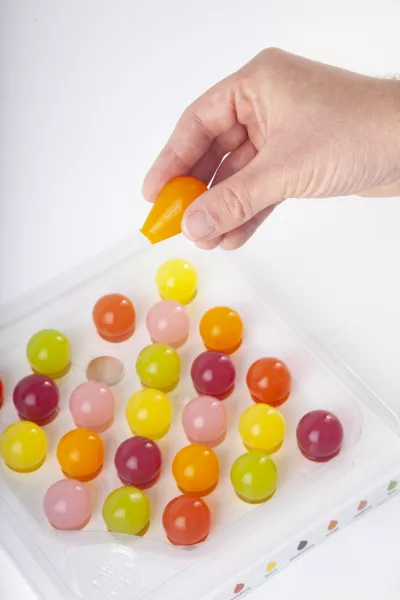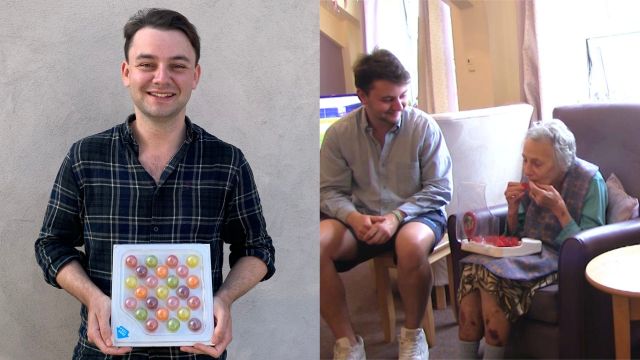Forgetting to drink, or being unable to, is a common issue for dementia patients – 37% of elderly people admitted to hospital are acutely dehydrated, according to a 2015 study by the National Centre for Biotechnology Information in the US.
Aiming to help tackle the problem, Lewis Hornby, from Lancashire in the UK, created Jelly Drops, a sugar-free snack made from 95% water and electrolytes which officially launched this week after two years of development and testing.
The product has received £100,000 in funding from the Alzheimer’s Society and in return will donate 1% of all its profits to the charity.
Mr Hornby was inspired to create the sweets after his late grandmother, Pat, was taken to hospital in 2018.
The family were told to expect the worst but the problem proved to be dehydration and the pensioner made a full recovery, enjoying a good quality of life before her death due to Covid-19 this year.

A Masters student at Imperial College London at the time, Mr Hornby contacted dementia experts and even moved into his grandmother’s care home for a month to investigate the dehydration issue.
“Many of the residents would put food in their drink or pour the drinks away,” Mr Hornby told the PA news agency.
“Many (people with dementia) don’t feel thirst, don’t recognise cups and don’t have the dexterity to use cups.
“By far the biggest problem I found was that they needed help to drink and the carers just didn’t have the time to sit with each resident to ensure they were sufficiently hydrated.”

Mr Hornby said carers told him they did not like using hydration solutions such as sippy cups and bibs which are “over-medicalised” and have “childlike connotations”.
“I just wanted Jelly Drops to be sweets that anyone can enjoy – they just happen to be designed for people with dementia,” he said.
“It plays on the abilities of people with dementia to look after themselves … to hydrate independently and with dignity.
“From a carer perspective as well … often Jelly Drops can turn what is the hardest task of the day to the highlight of the day.”
The soft, vegan sweets come in six fruit flavours and are sold in trays of 24 – equivalent to 300ml of water.
Jelly Drops are already being sold to a number of UK care homes but the company has a 50,000-strong international waiting list and plans to begin exporting next year.
“We initially developed it with Grandma and it was a lot of development from that stage to a market-ready product,” Mr Hornby said.
“So when we started getting feedback off other people enjoying it as much as she did, that was a massive relief.
“It’s really great to be able to work on something you feel really passionate about … I’m very fortunate to be joined by a really great team as well.”

Mr Hornby said the product has also been used by people with other cognitive impairments, Parkinson’s disease, or those going through chemotherapy.
He said the company is also exploring different consistencies to help people who have swallowing difficulties, for whom the product is not currently recommended.







